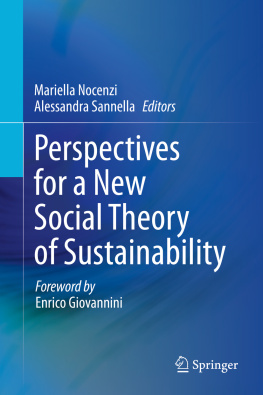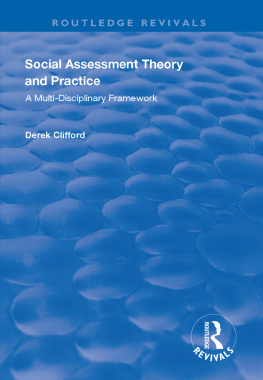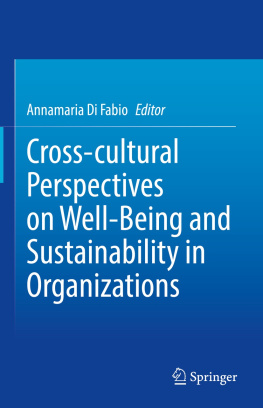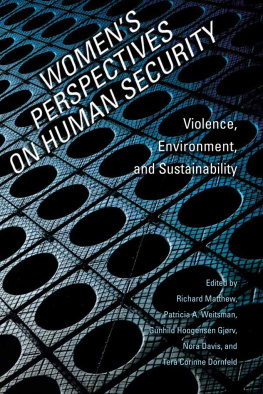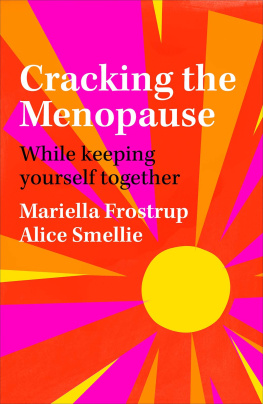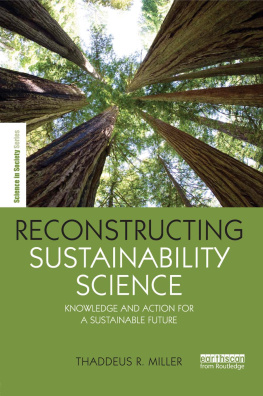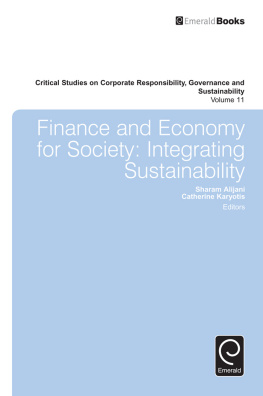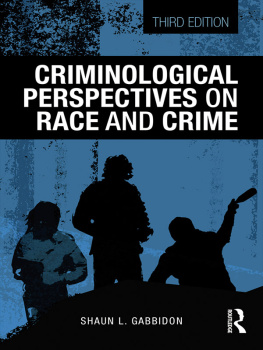Mariella Nocenzi - Perspectives for a New Social Theory of Sustainability
Here you can read online Mariella Nocenzi - Perspectives for a New Social Theory of Sustainability full text of the book (entire story) in english for free. Download pdf and epub, get meaning, cover and reviews about this ebook. year: 2020, publisher: Springer; International Publishing, genre: Politics. Description of the work, (preface) as well as reviews are available. Best literature library LitArk.com created for fans of good reading and offers a wide selection of genres:
Romance novel
Science fiction
Adventure
Detective
Science
History
Home and family
Prose
Art
Politics
Computer
Non-fiction
Religion
Business
Children
Humor
Choose a favorite category and find really read worthwhile books. Enjoy immersion in the world of imagination, feel the emotions of the characters or learn something new for yourself, make an fascinating discovery.
- Book:Perspectives for a New Social Theory of Sustainability
- Author:
- Publisher:Springer; International Publishing
- Genre:
- Year:2020
- Rating:3 / 5
- Favourites:Add to favourites
- Your mark:
- 60
- 1
- 2
- 3
- 4
- 5
Perspectives for a New Social Theory of Sustainability: summary, description and annotation
We offer to read an annotation, description, summary or preface (depends on what the author of the book "Perspectives for a New Social Theory of Sustainability" wrote himself). If you haven't found the necessary information about the book — write in the comments, we will try to find it.
Perspectives for a New Social Theory of Sustainability — read online for free the complete book (whole text) full work
Below is the text of the book, divided by pages. System saving the place of the last page read, allows you to conveniently read the book "Perspectives for a New Social Theory of Sustainability" online for free, without having to search again every time where you left off. Put a bookmark, and you can go to the page where you finished reading at any time.
Font size:
Interval:
Bookmark:
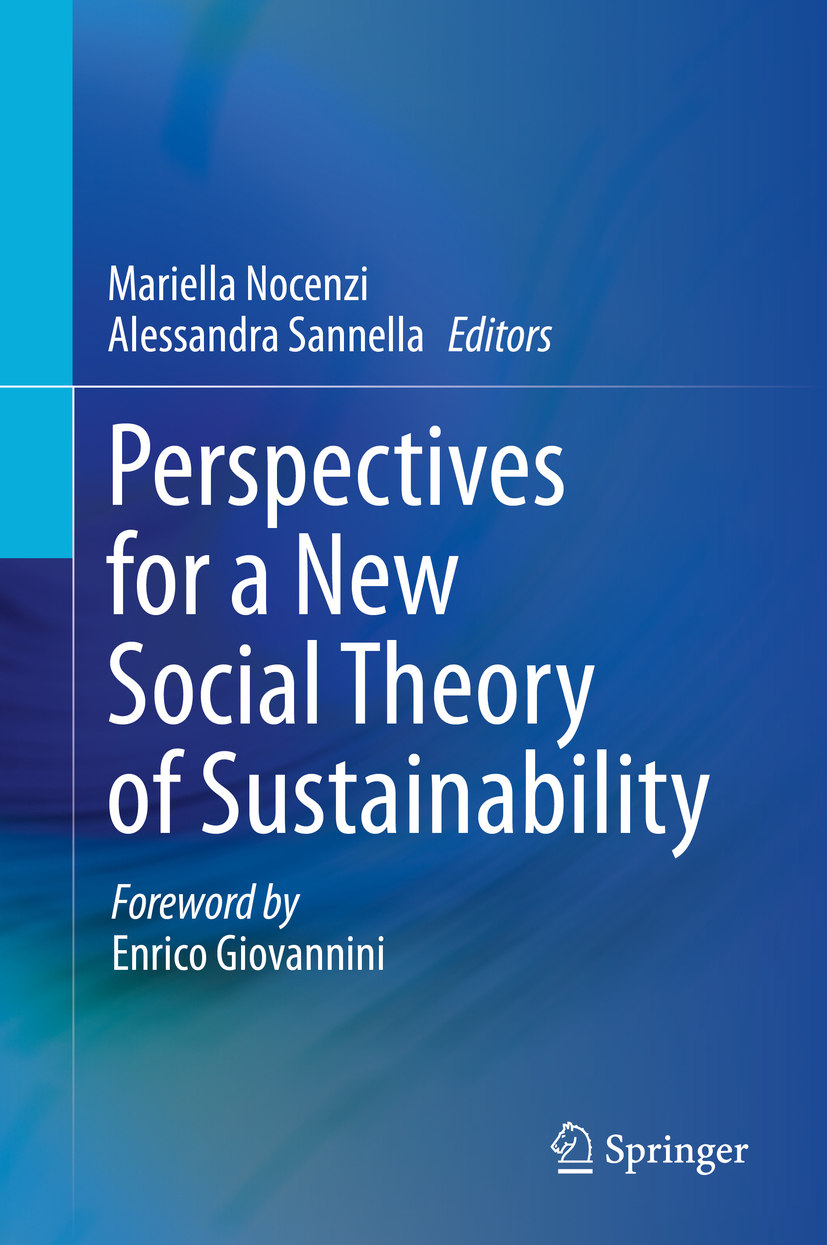

This Springer imprint is published by the registered company Springer Nature Switzerland AG
The registered company address is: Gewerbestrasse 11, 6330 Cham, Switzerland
When I joined the Organization for Economic Co-operation and Development (OECD) as Chief Statistician in January 2001, the organization was running an innovative project on sustainable development, the first large-scale project run by an international organization on this theme. It was a challenging project, both politically and analytically. At that time, some countries (especially the USA) were clearly against the involvement of the OECD in a project dealing with sustainable development, and thus the trade-off between economic development and the protection of the environment. Other countries supported the project (even financially), as they were convinced that only a holistic approach to sustainable development would allow for a true paradigm shift in policy making.
From an analytical perspective, the project was also extremely challenging. The Statistics Directorate was responsible for defining a statistical framework to measure the sustainability of a socio-economic system, which implied the design of a conceptual framework (in line with the Brundtland Report published in 1987) to fully integrate the economic, social, and environmental dimensions of sustainability. While running the project, we discovered a fundamental obstacle in developing such a fully integrated approach to sustainable development due to theoretical asymmetry: while in the economic and environmental domains the concept of thresholds was widely used to identify possible points beyond which a system becomes unsustainable (planetary boundaries, debt/GDP ratio, etc.), in fact, the absence of a theory of revolution able to predict when a society reaches a tipping point, and thus initiating a revolution, was preventing us from elaborating a reliable definition of social sustainability. We also tried to define social sustainability through the economic sustainability of institutions in charge of specific welfare pillars (pensions, health etc.), but this approach was inevitably unsuccessful.
At the end of that project, we worked hard with other institutions (the United Nations, the European Commission, etc.) and OECD countries to develop a measurement framework for sustainable development based on the capital approach, looking at four fundamental types of capital: economic, human, social, and natural. The framework developed at that timewas quite influential, and since then, some countries have used it to measure the sustainability of their socio-economic-environmental conditions. But while the measurement of economic and natural capital (at least in physical terms) was improved in several ways, the measurement of human capital, and especially that of social capital, did not reach a satisfactory level, conceptually or in practice.
With the signature of the 2030 Agenda for Sustainable Development,officially agreed upon by the United Nations in September 2015, the measurement of sustainability received a significant impetus. Since then, the international community of statisticians has multiplied its efforts to develop indicators concerning the 17 Sustainable Development Goals (SDGs) and the 169 Targets to be met by all countries in the world by 2030. Models have been developed, or are being developed, to evaluate alternative pathways towards the SDGs, or to simulate the impact of different policies on them.
Notwithstanding these important developments, the social dimension of sustainability is still far from being fully understood and measured. This book therefore represents an important contribution. The idea of developing a new sociological theory of sustainability, as the title of the first chapter of this book underlines, is very appealing, and thus deserves special attention. The contents of this book could also promote a better understanding of the relationships among the various dimensions of sustainable development, and so shape economic and social policies from an innovative perspective.
It is clear that, to bring the world onto a sustainable path, we need adequate technologies, a radical change in peoples mindsets, and a redesign of governance, in both public and private institutions. Understanding how sociology can help to stimulate this change is key to avoiding the development of abstract solutions that do not work in practice, as well as to recognise how a global effort can be implemented in societies with very different cultural backgrounds. The mental and cultural changes that we, as individuals and communities, need to make towards sustainability are profound, and all disciplines need to be involved, to possibly overcome the narrow borders of academic classifications and work according to innovative interdisciplinary and transdisciplinary approaches. This is why, for that matter, Ilaria Capua and I recently wrote a proposal, published inNature,to include a reference to the SDGs addressed by the research in all papers published by international scientific journals, as this would provide an overview on how scientific research deals with the multifaceted characteristics of sustainable development.
In conclusion, the effort towards sustainable development should be a priority for all of us, both individually and as members of the scientific community. This book addresses one of the weaknesses of the approaches followed so far to deal with sustainability, and I sincerely hope its contents can stimulate important advancements towards a fully integrated conceptual and policy approach to sustainable development.
Font size:
Interval:
Bookmark:
Similar books «Perspectives for a New Social Theory of Sustainability»
Look at similar books to Perspectives for a New Social Theory of Sustainability. We have selected literature similar in name and meaning in the hope of providing readers with more options to find new, interesting, not yet read works.
Discussion, reviews of the book Perspectives for a New Social Theory of Sustainability and just readers' own opinions. Leave your comments, write what you think about the work, its meaning or the main characters. Specify what exactly you liked and what you didn't like, and why you think so.

